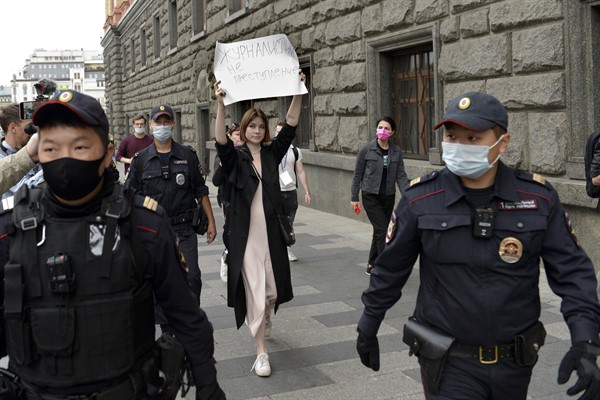Earlier this month, the Duma, Russia’s parliament, passed a law introducing punishments of up to 15 years in prison for disseminating “false information” about the Russian armed forces’ activities in Ukraine. The law requires that the Russian invasion of Ukraine be described as a “special military operation,” and applies to news media, journalists, bloggers and ordinary people alike. Though not technically a law regulating the media, it has already radically changed the country’s media landscape, essentially introducing military censorship in Russia.
Shortly after the new law was passed, Roskomnadzor, the Russian federal communications regulator, began blocking independent media outlets en masse for violating it, including Mediazona, The Insider, Meduza, Republic, the Silver Rain radio station and dozens of others. Several Western media outlets such as Voice of America, BBC and Deutsche Welle, have also been blocked. Some independent Russian media outlets that weren’t blocked informed their readers that they would no longer provide coverage of events in Ukraine, including Novaya Gazeta and The Bell. Others, like TV Rain and Radio Ekho Moskvy, opted to shut down completely.
Along with the extensive closure of independent media organizations, a mass emigration of journalists out of Russia has also begun. According to the Russian investigative journalism organization, Agentstvo, at least 150 journalists have already left the country, representing a significant percentage of some companies’ reporters. Meduza, for example, lost almost its entire Moscow staff of around 20 people, while TV Rain, Radio Ekho Moskvy and Novaya Gazeta also saw some of their staff journalists emigrate. Western media operating in Russia have also begun evacuating their reporters, among them most of the employees of the BBC Russian Service—at least 15 people—and the entire staffs of Bloomberg and Radio Liberty.

